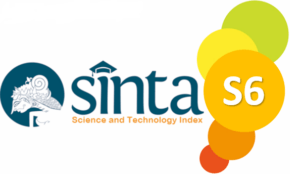| ..:: MAIN MENU ::.. |
| About The Journal |
| Focus & Scope |
| Peer Review Process |
| Author Guidelines |
| Publishing System |
| Privacy Statement |
| Copyright & License |
| Author Fees |
| Contact Us |
About the Journal
About the Journal
Focus and Scope
Focus:
Jurnal Psikologi Revolusioner (JPR) aims to advance the understanding of psychological processes, behaviors, and mental health through the dissemination of high-quality, peer-reviewed research. It seeks to contribute to the field of psychology by providing a platform for innovative studies, theoretical advancements, and practical applications across diverse areas of psychology.
Scope:
-
Research Areas:
- Clinical Psychology: Studies on mental health disorders, therapeutic interventions, clinical assessment, and treatment outcomes.
- Cognitive Psychology: Research on mental processes such as perception, memory, decision-making, and problem-solving.
- Developmental Psychology: Investigations into psychological growth and change across the lifespan, including child development, adolescence, and aging.
- Social Psychology: Exploration of how social interactions, group dynamics, and societal influences affect individual behavior and cognition.
- Industrial-Organizational Psychology: Studies on workplace behavior, organizational practices, employee well-being, and human resources.
- Health Psychology: Research on the interplay between psychological factors and physical health, including stress management, chronic illness, and health behaviors.
- Neuropsychology: Insights into the relationships between brain function and behavior, including studies on neurological disorders and cognitive functions.
- Educational Psychology: Investigations into learning processes, educational interventions, and cognitive development in educational settings.
Peer Review Process
The authors of the article have to pay attention to the following editorial policy provisions:
- The manuscript that has been published or in the process of publication on another publisher may not be submitted. The author should confirm that the manuscript has not been published or in the process of being published by other publishers (in sealed).
- Manuscript submitted in digital form to the Editorial Board of Jurnal Psikologi Revolusioner (JPR) using the online submission provided on this website.
- Upon acceptance of the Editorial Board, the manuscript will be explored in general. Scripts which are considered incompatible with the mission of Jurnal Psikologi Revolusioner will be rejected at this stage, and will be communicated immediately to the author and the reason of disapproval.
- Manuscripts that pass the general study will be sent to at least two reviewers (blind reviewer) to be formally studied.
- Based on reviewers' comments and recommendations, the Editorial Board will make and communicate decisions regarding assessed manuscripts (accepted without revision, accepted with minor revisions, major revisions accepted, rejected due to the quality of writing and rejected because of ethical reasons writing scientific papers).
- Revised manuscript must be returned to the Editorial Board within a predetermined time. If the revised manuscript is sent past the deadline specified, it will be treated as new submissions.
Publication Frequency
JPR published 12 times a year.
Open Access Policy
This journal provides immediate open access to its content on the principle that making research freely available to the public supports a greater global exchange of knowledge.
Publication Ethics Statement
JPR managed by jurnalhst.com. Editing in the publishing process of JPR involves the role of Peer Reviewers.
JPR has a high commitment in maintaining the highest standard in publication, including by upholding compliance to publication ethics. For this purpose, the Publication Ethics of this journal refers to the Regulation of the Head of Indonesian Institute of Sciences No. 5 of 2014 on the Code of Ethics of Scientific Publications. The Publication Ethics, which is intended to respond to cases of ethical misconduct in publications, is developed in four ethical standards, based on the parties participating in the production of a journal, which are Ethical Standard for Journal Manager, Ethical Standard for Editorial Board, Ethical Standard Peer Reviewers and Ethical Standard for Authors.
When it comes to implementation, articles that show lacks of compliance to the Publication Ethics will be denied publication in JPR. To prevent violations of the Publication Ethics, the Editorial Board applies software to detect plagiarism practices. In any case where violations of the Publication Ethics of a published article is detected subsequently, the Editorial Board will file a report to the appropriate authorities.




